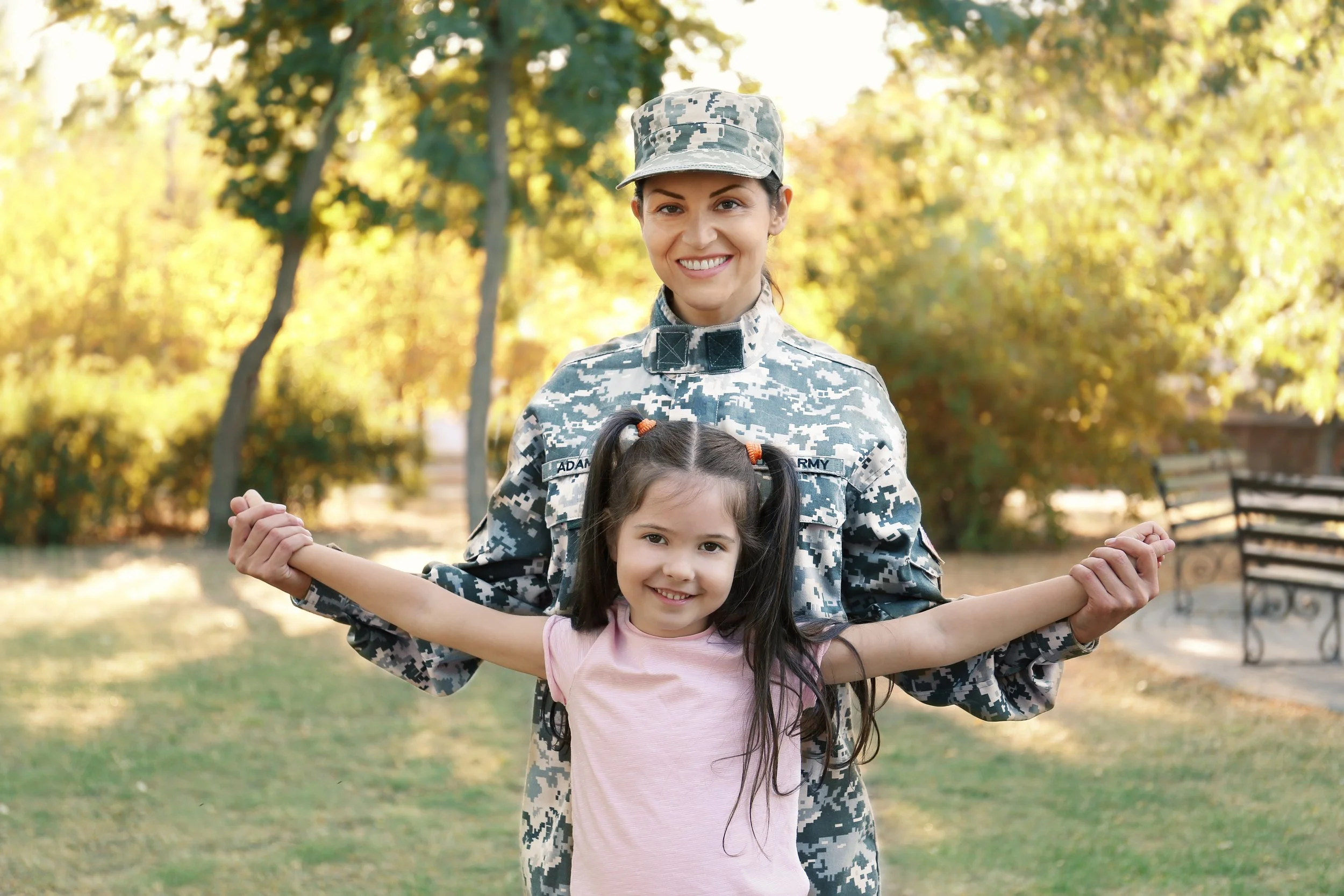The Human Side of Military Weight Standards
Trigger Warning: Weight stigma, weighing, dieting behaviors
Forty-two days after giving birth to my first daughter, I handed her over to daycare and returned to work as an enlisted Cryptologic Technician (CTR) in the U.S. Navy. The standards are thankfully different now, but at that time, new mothers had only six weeks to return to work and six months to meet weight and physical fitness standards. That meant being medically “cleared” for duty to work out again and pass the Navy’s physical fitness test, despite the fact that I still had stitches from a complicated birth.
Training to pass the physical fitness and weight standards after childbirth required me to take measures that ultimately destroyed my relationship with food and exercise. Senior leaders told me to work out harder, eat less, and the weight would come off. (It’s not that simple, by the way.) Regardless, the damage was done. For my eight years of active-duty military service, I would struggle with body dysmorphia and a desperate attempt to stay within weight standards.
Approximately every six months, all active service members are measured to ensure they meet weight standards. If you do not pass, you are then "taped." These standards can greatly impact the career of a service member and can ultimately result in being forced to leave the military with a general discharge. Maintaining these weight standards often results in widespread food restriction and dieting.
The stress and anxiety I felt about my weight fostered an eating disorder that I struggled with daily. I was working long hours, barely sleeping, not properly nourishing myself, exercising more than what was considered optimal, and trying to bond with my baby, whom I rarely saw. On top of that, I was also the one in every eight women who experience postpartum depression after giving birth. With the constant stress I was facing, I was desperate not to lose my job and so fearful of being a failure to everyone that I was failing myself. Without proper nutrition and not knowing what a dietitian was then, I barely fit into the standards and needed to be taped at the end of those six months, but I did pass.
About a year after having my first daughter, I was sitting in a command brief I was voluntold to attend, where a Navy dietitian told us something wildly inaccurate about food and calories. I remember sitting there in the auditorium thinking, there is no way their explanation is accurate. This one thought resonated with me so deeply, that when I got out of the Navy, I decided to become a registered dietitian so that I could go back and fix the nutrition misconception in the military.
Turns out what they stated absolutely was inaccurate. I earned both my bachelor’s and master’s degrees in nutrition to be confident in my ability to correctly and safely talk about food. I tried to get back into the Navy but ended up in the Army as a Registered Dietitian.
I am honored to have served this country twice but the hardest part about being a dietitian in the military was not believing in what I was being told to tell my patients.
Some people have metabolic disorders, comorbidities, medications, or a genetic disposition that can result in stabilizing at a higher weight than what BMI reflects as “healthy”. This is NOT a failure; health is a complicated puzzle that needs to be analyzed and addressed with individualized care. Health is not a one size fits all, but a complex mess that involves stress, inflammation, lack of sleep, inconsistent eating events, extreme physical expectations, mental hardship, lack of nutrition knowledge, and fear (among other things). People need an empathetic and collaborative medical team — with a doctor, mental health provider, and dietitian who are trained in recognizing eating disorders — not to be ignored, shamed, bullied, and abandoned. Leadership that is not medically qualified is often trusted to identify the risks of harmful behaviors like eating disorders and report them. This does not happen often and is not something that should be required of people who are not properly trained.
Telling people to work out harder and eat less while calling them “fat troops” is NOT the answer, and kicking them out of the military for archaic BMI standards is unacceptable. I have seen extremely fit and incredibly strong service men and women fail to meet the weight standards, and people that are high ranking get away with not being weighed at all to avoid failing. I have had to sign off on a “weight control program” for an incredible woman and Soldier who had a miscarriage at 18 weeks because she did not make it back within standards in enough time after her loss. I had to educate my entire leadership on the severity of a Soldier passing out during her shift because of Anorexia Nervosa, and that her being well under the weight standards is not safe. When people are literally starving themselves to shrink their bodies or hoarding rocks in their uniforms to make weight standards, this is a significant problem we need to address.
Warfighter mentality should absolutely include physical, mental, and overall wellness, but not at the cost of the warfighter.
We are human beings who need to be seen and fought for through appropriate care. I may not have been able to “fix it” during my time in, but I am going to fight like hell now to advocate, educate, empower, and help whomever I can navigate through this. I plan to do this through my position within an incredible non-profit called SEA WAVES. If you are a veteran or service member who is struggling with an eating disorder, or if you know someone who is, please visit SEA-WAVES.org. I’m here for you; this matters to me; you matter to me.


